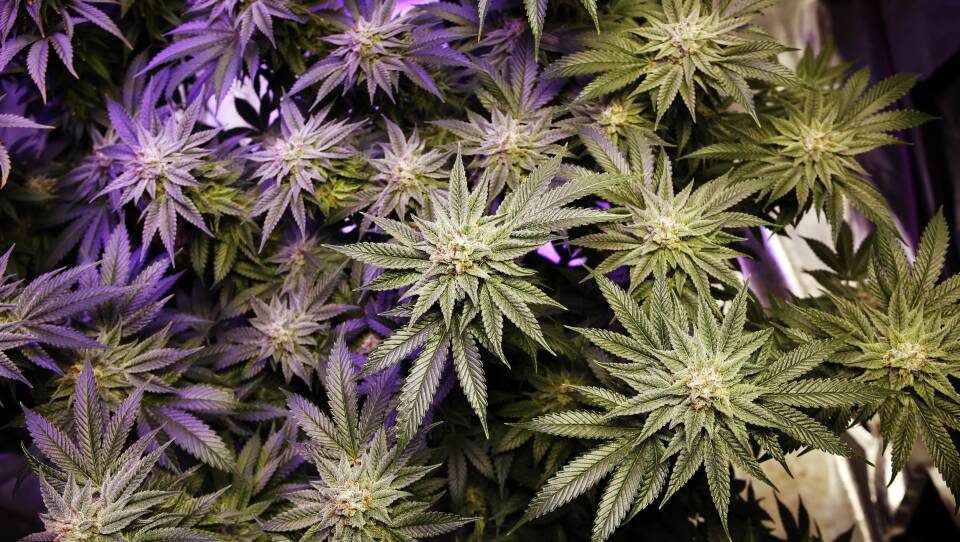On July 1, businesses with the proper licenses can officially start selling recreational marijuana to anyone 21 years or older in Massachusetts. But the sale and use of marijuana carries a lot of restrictions, as well as resistance, depending on what part of the state you live in.
To break down the various complexities packed into the recreational marijuana law, Morning Edition's anchor Joe Mathieu is sitting down with WGBH's Daniel Medwed to flesh out a specific component each week leading up to the official opening of the recreational industry. This week, Medwed explains the sensitive line businesses owners have to walk as federal prosecutors still have the power to enforce national marijuana laws. Medwed also explains the difficulty of prosecuting someone for driving under the influence of cannabis.
The transcript has been edited for clarity:
Joe Mathieu: Now assuming that the retail pot stores are in compliance with all the regulations that have been drawn up, is there still a chance the feds could enforce federal marijuana laws and break them up to prosecute these operators?
Daniel Medwed: I think there's a chance but I wouldn't consider it a high one, pardon the pun. A federal law that has long criminalized the production and distribution of marijuana in ways that affect interstate commerce, that's what gives Congress jurisdiction to develop those crimes. But in 2013 the Obama administration issued a memo called the Cole memo that basically said that federal prosecutors wouldn't go after state operators of legitimate marijuana businesses in states where it's been decriminalized as long as those operators are in compliance with state law and not distributing marijuana to juveniles, organized crime and so on.
Mathieu: Earlier this year President Trump's Attorney General Jeff Sessions rescinded that policy and announced that local federal prosecutors could basically decide for themselves whether they wanted to pursue federal marijuana offenses even in states where marijuana is legal. That created a lot of questions, a lot of confusion at the time as Jeff Sessions famously said good people do not smoke marijuana, but I wonder what your thought is about the local federal prosecutor? There have been many questions about his intentions as well. Do you have a sense of where his head is?
Medwed: Well, absolutely. The local federal prosecutor for the District of Massachusetts is a guy named Andrew Lelling who was appointed by President Trump. Initially Lelling responded to the Session's announcement by not ruling out the possibility of going after marijuana businesses in Massachusetts and that caused a great deal of consternation.
Since then it appears as though Lelling indirectly has walked back a little bit, retreated a bit by suggesting that he wants to divert his resources to more serious crimes including the opioid epidemic. But nevertheless there will always be a cloud, a federal cloud looming over state marijuana activity unless and until Congress abolishes all these laws criminalizing federal marijuana.
Mathieu: And until then he would have the right to break up these businesses?
Medwed: Absolutely, he could choose to pursue it.
Mathieu: We're talking with WGBH legal analyst Daniel Medwed about the looming rollout of retail marijuana sales in the next month. Many are concerned about the impact of legalized marijuana on driving. Daniel, what are some of the criminal laws related to motor vehicles knowing there's no equivalent to a breathalyzer?
Medwed: You're right there's no breathalyzer for marijuana. A breathalyzer can track blood alcohol content and determine whether someone is intoxicated but with marijuana there isn't that type of scientific device. And even if there was one that could basically document the amount of THC, which is the active ingredient in marijuana, in a person's system it's an inaccurate gauge because THC lingers in a person's bloodstream and it might be indicative of past use not current use. The upshot is what the police are going to do when they suspect someone of driving while stoned is put them through their paces in terms of a field sobriety test, see if their finger can touch their nose, if they can count backwards from 10 to one and so on.
And what the police are allowed to do pursuant to a 2017 Supreme Judicial Court opinion is that they can testify about their observations of how the person fared, what was their balance like, their coordination, their mental dexterity. But notably the police may not offer their expert opinion about whether the person failed or passed the field sobriety test, whether the person was or was not driving under the influence of marijuana.
Mathieu: So we don't really know whether it'll be easy to prosecute these cases. Sounds like a lot of gray area as we get into our brave new world here, Daniel.
Medwed: I think that's right.




